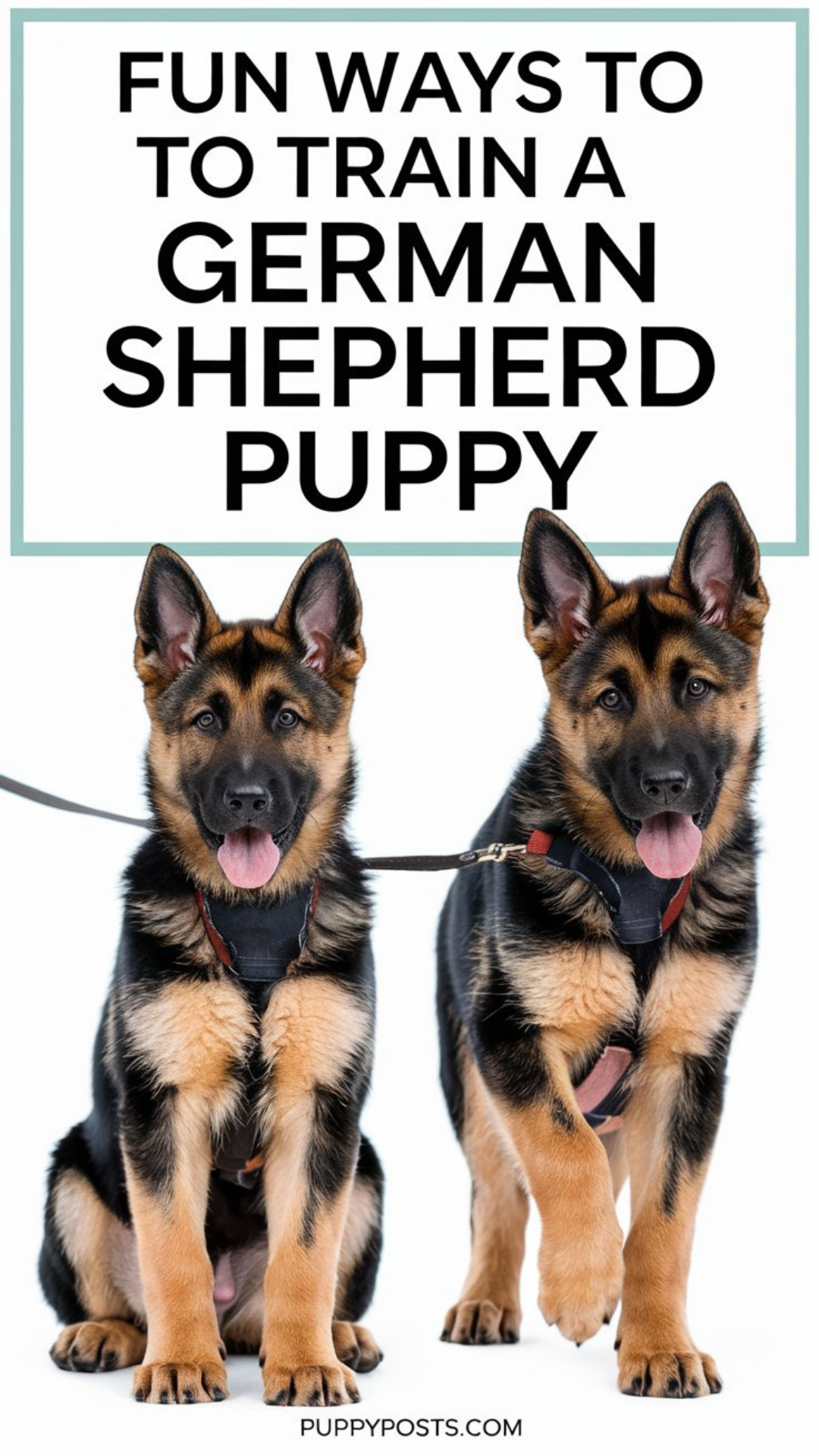Fun ways to train a German Shepherd puppy
Alright, let’s talk about German Shepherd puppies. These ain’t your average fluffy bundles of joy; they’re intelligent, driven, and they’re gonna push your buttons. If you think you can just let ’em run wild and expect a well-behaved dog, you’re dreaming. As a vet with a decade of experience, running my sanctuary here in Jersey, I’ve seen too many German Shepherds end up confused or unruly because their owners didn’t understand what they needed from day one. These dogs need a job, a purpose, and clear direction. Start ’em young, start ’em right. This isn’t just about fun; it’s about building a solid foundation for a loyal,

Establishing the “Boss”: Early Obedience & Impulse Control
A German Shepherd puppy thrives on structure. They need to know you’re in charge, calmly but firmly. This isn’t about being mean; it’s about being clear.
- “Sit” & “Down” – Every Single Time: These aren’t just tricks; they’re control. Don’t give them anything they want (food, a toy, attention) until they “Sit” or “Down.” Lure them with a treat, say the command clearly, and reward instantly when their rear hits the floor or they lie down. Make it mandatory for everything. This teaches them impulse control right from the start.
- “Stay” – Building Patience: German Shepherds have intensity. You need to teach them to be still. Start with just a second or two, saying “Stay” after they “Sit” or “Down.” Take one step back, then immediately return and reward. Gradually increase distance and duration. This is crucial for managing their energy and focus later on.
- “Come” – A Lifesaving Command: This is non-negotiable. Make “Come” the most exciting thing in their world. Use high-pitched, happy tones, big rewards (best treats, favorite toy), and lots of praise. Practice in a confined, safe space first. Every time they come to you, even if it’s accidental, praise and reward like they just won the lottery. Never use “Come” for punishment.
Brainy Games: Engaging That Sharp Mind
These puppies are smart. Really smart. If you don’t challenge their minds, they’ll find their own entertainment, and you won’t like their choices.
- “Find It!” – The Nose Knows: German Shepherds use their noses for everything. Hide a high-value treat (pea-sized chicken) in an easy spot while your puppy watches. Say “Find it!” and let them sniff it out. As they get better, make the hiding spots progressively harder – under a blanket, behind a cushion, eventually out of sight in another room. This engages their natural instincts and is mentally draining.
- Puzzle Toys for Puppies: Ditch the plain food bowl for at least one meal. Invest in a durable, puppy-appropriate puzzle feeder. Fill a KONG with their kibble mixed with a little wet food or xylitol-free peanut butter and freeze it. This makes mealtime a challenging mental exercise, preventing them from just inhaling their food and then getting bored.
- “Name That Toy”: Start teaching your puppy the names of their toys. Play with “Ball,” say “Ball!” enthusiastically, then let them mouth it. Do the same with “Rope.” Then, place both toys down and ask them to “Get the Ball!” Reward them for choosing the correct one. German Shepherds can learn a surprising number of object names, which builds vocabulary and sharpens their listening.
Social Savvy: Confidence and Calmness
A well-trained German Shepherd puppy isn’t just obedient; they’re confident and well-adjusted to the world around them. This ain’t just for fun; it’s essential.
- Puppy Socialization Classes: Find a reputable, positive-reinforcement puppy class. This is non-negotiable. Your puppy needs safe, controlled exposure to other vaccinated puppies and different people. They learn bite inhibition and appropriate social behavior. It’s supervised play that teaches them how to be a good dog.
- Novelty Exposure (Controlled): Introduce your puppy to different sights, sounds, and textures – carefully. A broom, a vacuum cleaner from a distance, walking on different surfaces (wood, tile, carpet). Always make it a positive experience with treats and praise. This builds resilience and prevents fear later on.
- Handling Practice: Regularly handle your puppy’s paws, ears, mouth, and tail. Make it a pleasant experience with treats. This prepares them for vet visits, grooming, and general handling, making life easier for everyone involved.
My Jersey Straight Talk: The Commitment
Listen up. Training a German Shepherd puppy isn’t a part-time gig. It’s a daily commitment, consistent and firm, but always fair and positive. These sessions should be short – 5-10 minutes, a few times a day – because puppies have short attention spans. Always end on a high note, even if it’s just for a simple “sit.” Never use punishment; it damages trust and can create fear or aggression.
You put the effort in now, when they’re little, teaching them to use that incredible brain and channeling their drive. You’ll build a bond that’s rock-solid, and you’ll raise a German Shepherd that’s not just a powerful dog, but a truly amazing companion. And that, my friend, is a promise.







